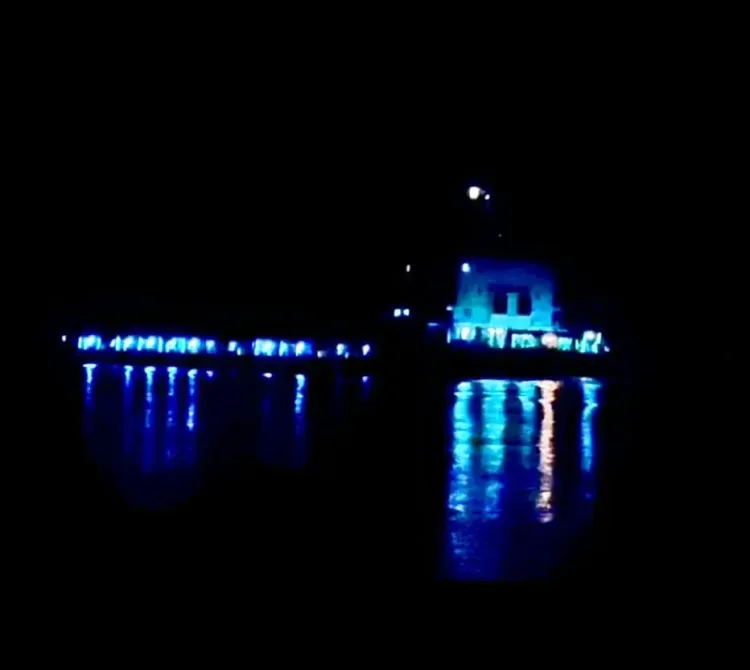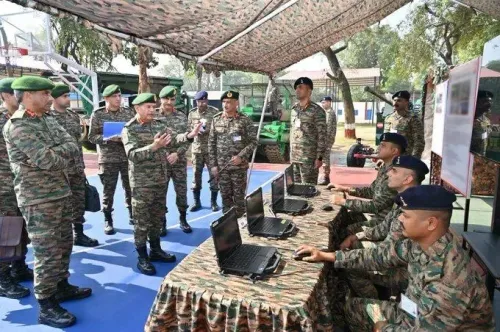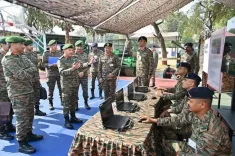Has SMPK Port Started Night Navigation in Hooghly?

Synopsis
Key Takeaways
- Initiation of night navigation at SMPK enhances operational capacity.
- This move aims to reduce vessel turnaround times.
- Utilization of advanced electronic navigation technology.
- Potential increase in daily vessel handling and berth availability.
- Improvement in critical KPIs for port efficiency.
Kolkata, May 3 (NationPress) Syama Prasad Mookerjee Port, Kolkata (SMPK), has initiated night navigation in the upper sections of the River Hooghly, stretching from Budge Budge to the sea as of Saturday, according to an official announcement.
A senior official from SMPK emphasized that this pivotal measure will significantly decrease the turnaround time and pre-berthing delays for vessels arriving at the Kolkata Dock System (KDS).
He noted that the lengthy and winding 232-km river channel leading from the sea to KDS, characterized by navigational depth restrictions and vigorous cross-tidal currents, has presented a notable challenge for consistent vessel movement.
“While high tides increase the draft twice daily, SMPK has been unable to fully capitalize on this due to the lack of night navigation between Diamond Harbour and Kolkata,” he mentioned.
By utilizing advanced electronic tools such as electronic charts and navigational simulators, alongside significant enhancements to navigational infrastructure—like track lights, transit lights, and illuminated channel buoys—SMPK has now facilitated uninterrupted nighttime vessel movement through the river channel.
According to a senior official, a thorough study and roadmap for night navigation were developed in partnership with the Port of Antwerp by the National Technology Centre for Ports, Waterways and Coasts (NTCPWC), IIT Madras. A navigational simulator, co-installed by IIT Madras and ARI, is now operational to assist with pilot training and real-time scenario assessments.
The first official run, carried out in the early hours of Saturday, successfully saw the container vessel M V Sinar Penida transit.
“The vessel, measuring 117 meters with a draught of 6 meters, transported a cargo of 8,000 tons from Budge Budge to the sea in complete darkness. This successful transit signifies the dawn of a new phase in navigation on the Hooghly,” stated the official.
Rathendra Raman, Chairperson of SMPK, remarked that this day marks a historic milestone for SMP Kolkata, asserting that the successful rollout of night navigation in the upper stretches of the River Hooghly exemplifies the scientific and technological strategies adopted by the port.
“This will greatly enhance operational efficiency and turnaround times, paving the way for increased trade throughput. With the acclimatization of pilots and ongoing technological advancements, we aspire to enable night navigation for larger vessels with deeper drafts, ultimately transforming SMPK into a more agile and future-ready port,” he added.
Meanwhile, Samrat Rahi, Deputy Chairperson of SMPK, indicated that the introduction of night navigation is anticipated to lead to a significant rise in the volume of vessels that can be accommodated daily, thereby greatly enhancing berth availability and port throughput.
“The capability to operate around the clock will alleviate congestion in the channel, facilitate quicker vessel turnaround, and directly influence critical Key Performance Indicators (KPIs) such as Pre-Berthing Delay, Berth Occupancy Rate, and Ship-Day Productivity. This strategic enhancement is set to establish SMPK as a more appealing and competitive hub for global shipping lines,” explained the Deputy Chairperson.









